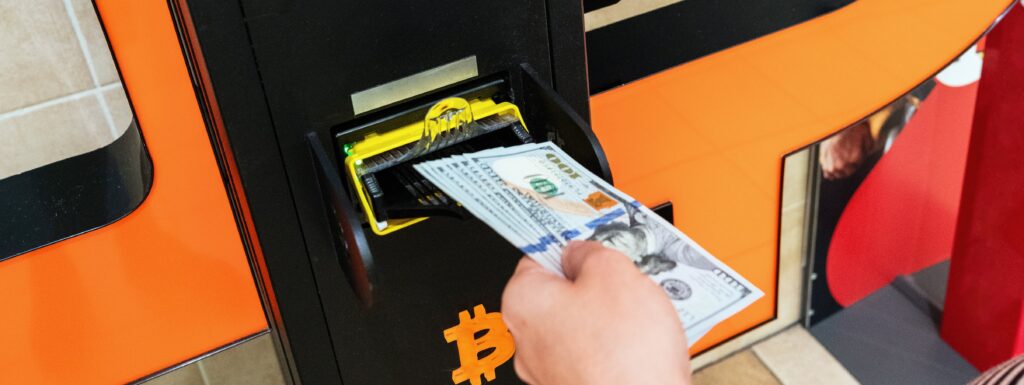
According to the Federal Trade Commission, gift-card related fraud accounted for losses of $217 million in 2023. These fraudulent scams involve situations where a scammer seeks payment via gift cards, thus bypassing the protections and scrutiny of the traditional financial system.
With the rise in gift card fraud, consumers have, naturally, become more aware of these scams. So, too, have retailers. Some stores now post warnings at their gift card kiosks, educating customers about the prevalent use of gift cards in scams.
Well, now scammers are turning their attention to a new payment medium: Bitcoin ATMs.
If someone sends you to a Bitcoin ATM, it’s a scam.
Why are Bitcoin ATMs so popular with scammers right now?
First, Bitcoin ATMs have become more accessible. It’s not nearly as uncommon to see a Bitcoin ATM inside your local grocery store.
Second, funds deposited into a Bitcoin ATM can’t be traced, and there’s no way to get your money back.
And third, a scammer can collect more money via a Bitcoin ATM. If someone purchases $3,000 in gift cards at Target, it’s going to raise suspicion—either by Target or by the purchaser’s debit/credit card. But, if someone deposits $3,000 (cash) at a Bitcoin ATM, there’s no store clerk who is physically there to question the transaction.
How can you protect yourself (and friends and family)?
- No matter how perilous of a situation created by the scammer, if they try to send you to a Bitcoin ATM, it’s most certainly a scam.
- The next time you visit with an elder friend or family member, educate them on the dangers of these scams. Let them know that they will never need to use a Bitcoin ATM.
- If you’re not sure, call your bank. Scammers thrive on isolating someone and rushing them into a decision. Don’t allow this to happen to you. If you don’t feel comfortable calling a friend—perhaps because you’re too embarrassed—call your bank. Banks hear about scams all the time, and a good bank will listen without judgement and will help you identify whether it’s a scam or not.
About the Author:
Bryan Fonville is the chief operations officer at Central National Bank. In his spare time, he enjoys running, tennis, and playing the trumpet.



Leave A Comment